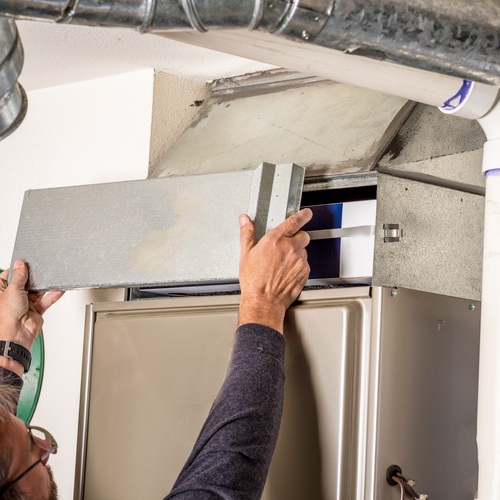 We’re heading into the hottest part of the year, so it’s unlikely you’re thinking too much about your home’s heating system. But if you’re house hunting this summer or you need to upgrade to a new system, now is the time to research and understand your options. In fact, you may find that you can get a break on the price of a new heating system or unit if you have it installed in the off-season. There are several types of heating systems available to homeowners. Here’s what you need to know.
We’re heading into the hottest part of the year, so it’s unlikely you’re thinking too much about your home’s heating system. But if you’re house hunting this summer or you need to upgrade to a new system, now is the time to research and understand your options. In fact, you may find that you can get a break on the price of a new heating system or unit if you have it installed in the off-season. There are several types of heating systems available to homeowners. Here’s what you need to know.
Furnace or forced air
The most common type of heating system in a home is a forced air unit, also known as a furnace. Furnaces can run on different types of fuel including gas, oil or propane. Furnaces are the most popular choice because they are reliable and generally inexpensive. They are easy to install and require little maintenance. However, then can produce and circulate allergens in your home. If you’re particularly sensitive, then consider getting your furnace updated so that it will filter your home’s air. Furnaces are easy to replace, and modern units are more efficient than they have ever been.
Boiler
Another type of heating system that is fairly common in a home is a boiler. Boilers use water to create and distribute heat in your home. This is usually done through pipes and radiators. These devices heat floors and walls to keep the air in your home warm. One great advantage of boilers is that, unlike furnaces, they are very quiet. They are a great choice if you have allergies, as they do not create or distribute allergens in your home. Most boilers run on gas, but they can be expensive to purchase and install. One of the biggest downfalls of boilers is that they can leak, especially as the unit gets older.
Heat pump
A third type of heating system you may encounter in a home is a heat pump. Heat pumps work by taking advantage of current temperatures to heat or cool your home. Most of the time, heat pumps operate on a forced air system that is similar to an air conditioner but run in reverse. Heat pumps are very efficient. In fact, geothermal systems, which use temperatures underground, are among the most efficient heating systems. Although they can save you money over the course of their lifespans, they are expensive to install. Heat pumps can also be quite noisy, and require more maintenance than other systems.
When to change systems
After reading through these choices, you may be wondering if you should change the type of system in your home. Rest assured, however, that it’s most often in your best interest to upgrade the system you have than to overhaul it by installing a new system. In most cases, this type of renovation is expensive and you’ll rarely see a return on that investment. When in doubt, unless you are already making major renovations that affect the layout of your home, stick with what you have and upgrade to a more efficient unit.
Compliments of Virtual Results